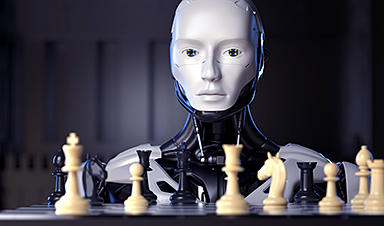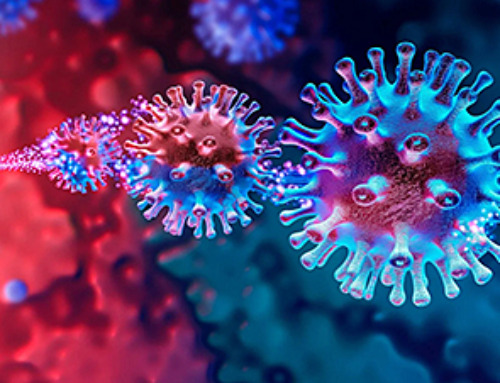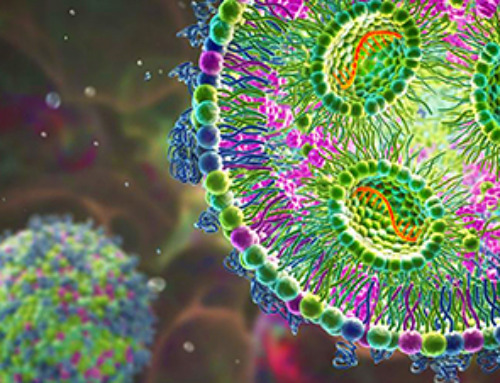"System 0" represents an emerging cognitive tool powered by AI that works alongside human intuition and analysis to enhance cognitive abilities.
This new system promises to support complex decision-making and problem-solving but requires careful management to avoid overreliance and ensure ethical use.
Introducing System 0
The growing interaction between humans and artificial intelligence (AI) is shaping a new way of thinking, known as System 0. This new cognitive framework exists outside the human mind but has the potential to enhance our cognitive abilities. System 0 works alongside the two established models of human thought: System 1, which is fast, intuitive, and automatic, and System 2, which is slower, more analytical, and reflective.
However, System 0 introduces an additional layer of complexity, reshaping the cognitive landscape in which we operate. This could represent a significant leap forward in how we think and make decisions. It is essential that we use this progress to strengthen our cognitive autonomy, ensuring we do not become overly reliant on AI.
This groundbreaking concept is detailed today (October 22) in the journal Nature Human Behaviour in an article titled "The Case for Human-AI Interaction as System 0 Thinking." The article is authored by a team of researchers led by Professor Giuseppe Riva, director of the Humane Technology Lab at Università Cattolica's Milan campus and the Applied Technology for Neuropsychology Lab at Istituto Auxologico Italiano IRCCS in Milan, and Professor Mario Ubiali from Università Cattolica's Brescia campus. The study was conducted in collaboration with Massimo Chiriatti from Lenovo's Infrastructure Solutions Group in Milan, Professor Marianna Ganapini from Union College in Schenectady, New York, and Professor Enrico Panai from Università Cattolica's Milan campus.
External Cognitive Support Systems
Just as an external drive allows us to store data that are not present on the computer, we can work by connecting our drive to a PC wherever we are, artificial intelligence, with its galactic processing and data-handling capabilities, can represent an external circuit to the human brain capable of enhancing it. Hence the idea of System 0, which is essentially a form of "external" thinking that relies on the capabilities of AI.
By managing enormous amounts of data, AI can process information and provide suggestions or decisions based on complex algorithms. However, unlike intuitive or analytical thinking, System 0 does not assign intrinsic meaning to the information it processes. In other words, AI can perform calculations, make predictions, and generate responses without truly "understanding" the content of the data it works with.
Humans, therefore, have to interpret on their ones and giving meaning to the results produced by AI. It's like having an assistant that efficiently gathers, filters, and organizes information but still requires our intervention to make informed decisions. This cognitive support provides valuable input, but the final control must always remain in human hands.
The Risks of Overreliance on AI
"The risk," professors Riva and Ubiali emphasize, "is relying too much on System 0 without exercising critical thinking. If we passively accept the solutions offered by AI, we might lose our ability to think autonomously and develop innovative ideas. In an increasingly automated world, it is crucial that humans continue to question and challenge the results generated by AI," the experts stress.
Furthermore, transparency and trust in AI systems represent another major dilemma. How can we be sure that these systems are free from bias or distortion and that they provide accurate and reliable information? "The growing trend of using synthetic or artificially generated data could compromise our perception of reality and negatively influence our decision-making processes," the professors warn.
AI could even hijack our introspective abilities, they note—i.e., the act of reflecting on one's thoughts and feelings—a uniquely human process. However, with AI's advancement, it may become possible to rely on intelligent systems to analyze our behaviors and mental states. This raises the question: to what extent can we truly understand ourselves through AI analysis? And can AI replicate the complexity of subjective experience?
The Future of Cognitive Enhancement
Despite these questions, System 0 also offers enormous opportunities, the professors point out. Thanks to its ability to process complex data quickly and efficiently, AI can support humanity in tackling problems that exceed our natural cognitive capacities. Whether solving complex scientific issues, analyzing massive datasets, or managing intricate social systems, AI could become an indispensable ally.
To leverage the potential of System 0, the study's authors suggest it is urgent to develop ethical and responsible guidelines for its use. "Transparency, accountability, and digital literacy are key elements to enable people to critically interact with AI," they warn. "Educating the public on how to navigate this new cognitive environment will be crucial to avoid the risks of excessive dependence on these systems."
The Future of Human Thought
They conclude: If left unchecked, System 0 could interfere with human thinking in the future. "It is essential that we remain aware and critical in how we use it; the true potential of System 0 will depend on our ability to guide it in the right direction."
Reference: "The case for human–AI interaction as system 0 thinking" by Massimo Chiriatti, Marianna Ganapini, Enrico Panai, Mario Ubiali and Giuseppe Riva, 22 October 2024, Nature Human Behaviour.
DOI: 10.1038/s41562-024-01995-5
News
COVID-19 still claims more than 100,000 US lives each year
Centers for Disease Control and Prevention researchers report national estimates of 43.6 million COVID-19-associated illnesses and 101,300 deaths in the US during October 2022 to September 2023, plus 33.0 million illnesses and 100,800 deaths [...]
Nanomedicine in 2026: Experts Predict the Year Ahead
Progress in nanomedicine is almost as fast as the science is small. Over the last year, we've seen an abundance of headlines covering medical R&D at the nanoscale: polymer-coated nanoparticles targeting ovarian cancer, Albumin recruiting nanoparticles for [...]
Lipid nanoparticles could unlock access for millions of autoimmune patients
Capstan Therapeutics scientists demonstrate that lipid nanoparticles can engineer CAR T cells within the body without laboratory cell manufacturing and ex vivo expansion. The method using targeted lipid nanoparticles (tLNPs) is designed to deliver [...]
The Brain’s Strange Way of Computing Could Explain Consciousness
Consciousness may emerge not from code, but from the way living brains physically compute. Discussions about consciousness often stall between two deeply rooted viewpoints. One is computational functionalism, which holds that cognition can be [...]
First breathing ‘lung-on-chip’ developed using genetically identical cells
Researchers at the Francis Crick Institute and AlveoliX have developed the first human lung-on-chip model using stem cells taken from only one person. These chips simulate breathing motions and lung disease in an individual, [...]
Cell Membranes May Act Like Tiny Power Generators
Living cells may generate electricity through the natural motion of their membranes. These fast electrical signals could play a role in how cells communicate and sense their surroundings. Scientists have proposed a new theoretical [...]
This Viral RNA Structure Could Lead to a Universal Antiviral Drug
Researchers identify a shared RNA-protein interaction that could lead to broad-spectrum antiviral treatments for enteroviruses. A new study from the University of Maryland, Baltimore County (UMBC), published in Nature Communications, explains how enteroviruses begin reproducing [...]
New study suggests a way to rejuvenate the immune system
Stimulating the liver to produce some of the signals of the thymus can reverse age-related declines in T-cell populations and enhance response to vaccination. As people age, their immune system function declines. T cell [...]
Nerve Damage Can Disrupt Immunity Across the Entire Body
A single nerve injury can quietly reshape the immune system across the entire body. Preclinical research from McGill University suggests that nerve injuries may lead to long-lasting changes in the immune system, and these [...]
Fake Science Is Growing Faster Than Legitimate Research, New Study Warns
New research reveals organized networks linking paper mills, intermediaries, and compromised academic journals Organized scientific fraud is becoming increasingly common, ranging from fabricated research to the buying and selling of authorship and citations, according [...]
Scientists Unlock a New Way to Hear the Brain’s Hidden Language
Scientists can finally hear the brain’s quietest messages—unlocking the hidden code behind how neurons think, decide, and remember. Scientists have created a new protein that can capture the incoming chemical signals received by brain [...]
Does being infected or vaccinated first influence COVID-19 immunity?
A new study analyzing the immune response to COVID-19 in a Catalan cohort of health workers sheds light on an important question: does it matter whether a person was first infected or first vaccinated? [...]
We May Never Know if AI Is Conscious, Says Cambridge Philosopher
As claims about conscious AI grow louder, a Cambridge philosopher argues that we lack the evidence to know whether machines can truly be conscious, let alone morally significant. A philosopher at the University of [...]
AI Helped Scientists Stop a Virus With One Tiny Change
Using AI, researchers identified one tiny molecular interaction that viruses need to infect cells. Disrupting it stopped the virus before infection could begin. Washington State University scientists have uncovered a method to interfere with a key [...]
Deadly Hospital Fungus May Finally Have a Weakness
A deadly, drug-resistant hospital fungus may finally have a weakness—and scientists think they’ve found it. Researchers have identified a genetic process that could open the door to new treatments for a dangerous fungal infection [...]
Fever-Proof Bird Flu Variant Could Fuel the Next Pandemic
Bird flu viruses present a significant risk to humans because they can continue replicating at temperatures higher than a typical fever. Fever is one of the body’s main tools for slowing or stopping viral [...]





















